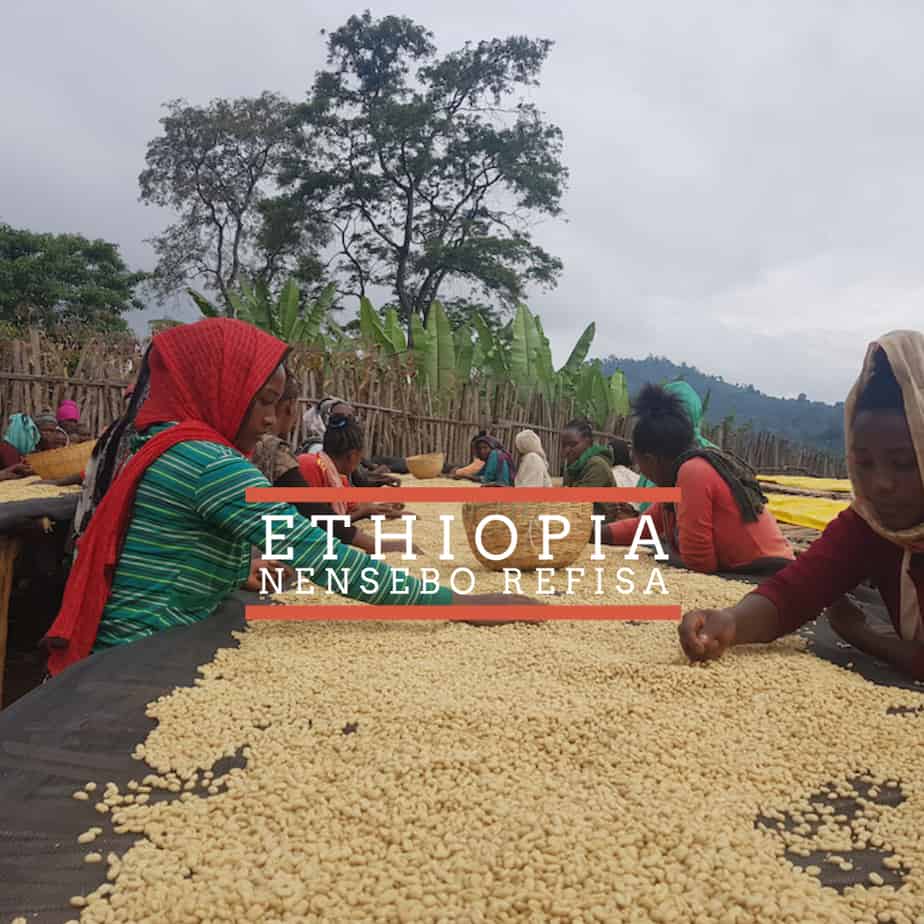We’ve just gone live with our latest Natural Ethiopian coffee from Nordic Approach Importers—the Nensebo Refisa!. Since day one has blown us away on the cupping table. This natural coffee is so clean, you’d think you were drinking a juicy washed Ethiopian, such a stunner that we have given it a 87.50 cupping score. Whether on espresso or filter this coffee will not disappoint.
Not to mention the story of what the exporters at SNAP COFFEE are doing for the community around this the Refisa washing station is incredible. Read more in the details below.
Region: West Arsi
Washing station: Refisa, 389 farmers
Altitude: 1950masl
Coffee varieties: Welisho & Kurume
Process: Natural
Drying: Raised bed
Cupping notes: Raspberry, Lime, Floral
Cupping score: 87.50
Refisa is a washing station located in West Arsi with 389 active farmer members that deliver cherries. This washing station is owned by SNAP COFFEE exporters.
SNAP COFFEE was established in Addis Ababa in 2008, by coffee-passionate entrepreneur, Negusse D. Weldyes. The company runs three coffee washing and processing stations in Chelelektu, Kochere District of the Gedeo Zone and partnering washing stations in Uraga (Guji) and Nensebo (West Arsi). On average, about 550 farmers supply each washing station.
The company’s supply policy rests on three main pillars:
– Process specialty coffee consistently
– Transfer the required know-how to the outgrowing farmers along with a great desire and training in processing and cleaning methods
– Protect the environment through waste recycling systems.
Average lot size of farmers is 1-2 hectares, the soil is rich and fertile and generally they have between 1800-2400 trees per hectare. Each tree produces on average 3 kgs of cherries.
SNAP COFFEE supports the community of smallholder living near the washing station through partnerships with washing station owners. The washing stations build schools and SNAP COFFEE provides computers and other facilities. SNAP COFFEE is also constructing roads to less accessible farming areas and are also planning to build health clinics in the future to improve access to healthcare for farmers in the washing station areas.
